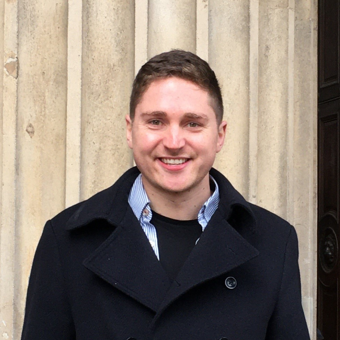Craig Holt - Chief Executive of Quality Solicitors - asks why brands are the future of the legal market
The word brand comes from Old Norse "brandr" meaning "to burn".
Early man would burn their ownership onto livestock and, as trade developed, buyers would use brands to distinguish between cattle of one farmer and another. Farmers with a good reputation would find their brand sought after. Thus brands’ origins as an aid to choice were established and have continued as their core-essence ever since. Fast-forward to modern day and brands are omnipresent in society. “People like brands because they accelerate the decision making process” (AGDA), “they are the express checkout for people living their lives at ever increasing speed” (BrandWeek). There is scarcely a single product or service which consumers might purchase where we are not presented with brands. An otherwise bewildering amount of choice, often with very limited tangible differentiation, would be virtually impossible to navigate. It means, for example, we don’t need to be experts in telecommunications to select a mobile phone provider – we are influenced by our gut feel in respect of the different brands.
Brands are at their most effective where there is an excess of choice and/or it is hard to differentiate between that choice. No wonder then that the legal market is considered ripe for brand success when it combines both of those elements to a remarkable degree. There are around 10 law firms on average for every single UK town. Most cities have dozens upon dozens. The consumer legal market remains so fragmented it has been described as one of the last remaining significant cottage industries. Add to that the fact that it is virtually impossible for consumers externally to differentiate one provider of legal services from another and it is not difficult to see why well-known brands would be leapt upon by a confused public. A recent YouGov market report found 62% of the public agreed or strongly agreed that “with so many high street law firms around it is difficult to differentiate one from another and to make an informed choice”. Over 60% of people in a previous YouGov survey couldn’t name even a single law firm, notwithstanding that 78% of people from the same poll had used a law firm previously. Despite repeat clients and recommendations forming the bedrock of most law firms’ revenues, objective customer loyalty levels are low: “only a minority of those using a legal service can be classed as loyal with the rest likely to be at best indifferent and likely to switch to another supplier…in a market where the use of legal services is generally infrequent…few consumers will necessarily stay with the law firm or solicitor they used previously” (YouGov 2011).
So, when needing legal services, people simply don’t know local firms and, when they start looking, are confused by the choice. Little wonder therefore they resort to having to ask friends, relatives or colleagues as well as browsing online and offline directories. This process takes time and energy that it is basic human nature to not want to have to expend. Try phoning around half a dozen law firms for a quote/information during your lunch break if you don’t agree with that! Furthermore, with the lack of familiarity comes unease and a concern of taking a leap of faith in the choice - even if done with the relative comfort of a friend’s endorsement. People, generally, prefer to use brands they recognise and trust. Faced with the choice of trying to make a choice between dozens of virtually unknown local law firms or simply going straight to a familiar brand a significant – and increasing – number of people will always take the latter option.
Of course, the challenge for brands – whether legal or otherwise - is to convey something more than pure awareness, albeit that is powerful in its own right in such a fragmented market. Brands need to convey their own differentiators in order to communicate that “gut feeling” about the brand that allows the consumer the luxury of being able to rely on their trust in that brand. If asked to hypothetically choose between “Tesco law”, “Virgin Legal Services”, “Barclays legal” or “QualitySolicitors”, most people would be drawn to one over the other – different for different people – based on their gut feel about those brands. That same ‘gut feel’ is extremely difficult for individual law firms to establish. Even if a meaningful differentiator is developed, with marketing budgets typically in the tens of thousands, the challenge becomes how to create the requisite levels of awareness to have anything close to a ‘brand’ that, in reality, typically require marketing budgets of millions.
An absolutely superb local reputation will help some firms to at least weather the forthcoming storm. The brand dominance in the analogous optician’s market hasn’t entirely wiped out independent opticians, although they now share less than 20% of a market that was one theirs entirely. A similar brand dominant outcome to the legal market is, however, ultimately inevitable. The only question is that pace with which this occurs. The challenge for law firms therefore is how to grow, or even just survive, whilst competing with other local law firms for an ever decreasing ‘non-brand’ market share. It can be done, but it would be naïve not to expect tough times ahead and prepare accordingly.









